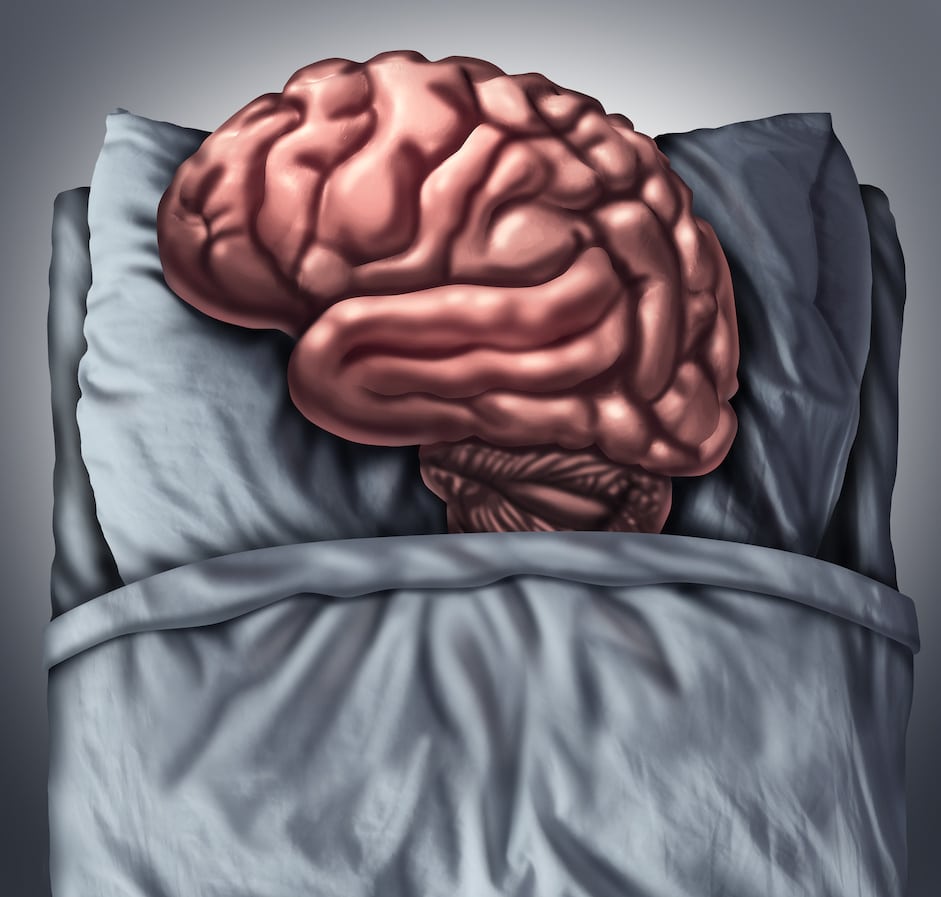Looking for Ways to Become Healthier? Sleep on It!

One of the biggest myths in our highly productive society is that sleep is just for the lazy and the bored — people who have nothing better to do with their lives. Chef, restaurateur, and television personality Gordon Ramsay exhibits an unusual amount of “fiery energy” and functions best on just three to four hours of sleep per night.
However, needing less sleep is nothing to get fired up about. It’s a gift, a genetic anomaly — sort of like Superman being able to fly. Chef Ramsey has what people in the United Kingdom refer to as the Thatcher Gene, named after former Prime Minister Margaret Thatcher, whose busy routine included a scant four hours of sleep per night.
Although proof of the Thatcher Gene is mostly anecdotal with very few reliable scientific studies to back it up, approximately one percent of the population is thought to be born with the ability to function well on about half the sleep most people need. To compound the injustice, these folks also tend to be more energetic, outgoing, optimistic, and ambitious. Many of them are also blessed with a higher metabolism and pain tolerance.
The rest of us need about seven to eight hours of quality sleep per night — not only to function at our peak but also to remain physically and mentally healthy. Not getting enough sleep can lead to serious medical conditions.
The Connection Between Lack of Sleep and Neurodegenerative Diseases
A recent article in TIME magazine titled “A Rinsing of the Brain. New Research Shows How Sleep Could Ward Off Alzheimer’s Disease,” highlights the fact that when we are asleep, the brain engages in some serious rest and relaxation. But it also remains active in some other ways. These include tasks such as sorting out the day’s events, keeping us entertained with fanciful dreams, and detoxing itself of harmful molecules. Specifically, among these are amyloid (pronounced am-a-loyd) proteins and their precursors — fragments of amyloid proteins called beta amyloid.
Amyloid proteins circulate freely in the brain during its normal workday and are normally flushed from the brain during sleep. When you lose sleep, this flushing doesn’t occur as thoroughly as it should, and beta amyloid builds up in the brain. These nightly brain cleanses may be what separate those who don’t get Alzheimer’s disease and other forms of dementia from those who do. (As an aside, six years after her death in 2003, Margaret Thatcher’s daughter revealed that her mother struggled with dementia.)
The connection between Alzheimer’s disease and sleep disorders has been known for decades, but researchers initially assumed that poor sleep was a symptom of the disease. They knew from previous studies that in Alzheimer’s patients, beta amyloid builds up in the brain and clumps together to form a sticky plaque that chokes and kills neurons, especially in memory regions of the brain. However, they thought this process is what caused the sleep disturbances characteristic of many people with Alzheimer’s. They didn’t consider the possibility that sleep loss could actually be triggering the process that was killing neurons.
Findings from more recent and more accurate studies suggest that poor sleep is responsible for the buildup of beta amyloid in the brain. In a 2009 study on mice, David Holzman, chair of the department of neurology at Washington University School of Medicine in St. Louis, found that while the mice were awake, the level of beta amyloid circulating in their brains surged but then dropped dramatically as they slept. That proved especially true during deep sleep — the non-rapid-eye-movement (non-REM) sleep stage. When these same mice were sleep-deprived, beta amyloid built up in their brains. Holzman and his team observed the same changes in the spinal fluid of sleep-deprived people.
Adam Spira, PhD., a professor in the department of mental health at the Johns Hopkins Bloomberg School of Public Health, conducted a study in 2013 that showed similar results among 70 human participants sharing an average age of 76. Brain scans of these sleep-deprived subjects showed higher levels of amyloid plaques than were present in the brains of study participants who slept better.
One year later, Dr. Maiken Nedergaard, co-director of the Center for Translational Neuromedicine at the University of Rochester, was able to identify a group of cells that pumps fluid through the brain during sleep. She referred to these cells collectively as the “glymphatic system,” because they function like the lymph system, which drains fluid from bodily tissues. These cells seem to be responsible for the nightly neural cleansing that flushes beta amyloid and other toxins from the brain.
Additional studies are in the works to determine whether better sleep (quantity, quality, or both) may help prevent Alzheimer’s disease and other forms of dementia. But the evidence currently available already suggests a strong connection between sleep and healthy neurons throughout the central nervous system, and perhaps extending throughout the peripheral nervous system.
Nine Other Health Benefits of Sleep
Avoiding dementia is reason enough to begin taking your sleep seriously. But consider the following nine reasons why a good night’s sleep is only beneficial to your health:
- Boosts your immune system. Sleep deprivation negatively impacts the release of protective cytokines, antibodies, and disease-fighting cells, increasing your susceptibility to infectious viruses and bacteria and impairing your ability to recover if you do get sick.
- Fights inflammation. Sleep loss activates undesirable markers of inflammation, which is a root cause of many chronic illnesses, including diabetes, high blood pressure, and autoimmunity. Studies show a strong connection between poor sleep and long-term inflammation of the digestive tract in conditions such as inflammatory bowel disease (IBD).
- Reduces stress. When your body doesn’t get the sleep it needs, it may react by producing more stress hormones that can trigger a host of medical conditions.
- Prevents weight gain and enhances weight loss. Lack of sleep causes the body to release ghrelin, a hormone that increases appetite, and decreases the production of leptin, a hormone that signals when you’re full. In addition, sleep loss increases stress, which triggers an appetite for carbs. Studies show that long-term sleep loss increases the risks of obesity and diabetes.
- Supports cardiovascular health. Lack of sleep disrupts biological processes such as glucose metabolism, blood pressure, and inflammation. Many studies show a connection between sleep apnea and cardiovascular disease and stroke. In a 2016 study published in the International Journal of Behavioral Nutrition and Physical Activity, teens who slept poorly were found to have a higher body mass index, larger waists, higher blood pressure, and an elevated risk of hypertension.
- Improves mood. Better sleep leaves you feel rested, which puts you in a better mood. Sleep deprived individuals report increases in negative emotions, including anger, frustration, irritability, and sadness. In one study, participants who suffered from insomnia were found to be five times more likely to develop depression and even more likely to develop anxiety or panic disorders.
- Improves brain function. Lack of sleep negatively impacts memory, concentration, decision-making, coordination, reaction times, and the ability to process emotional information, which can affect a person’s ability to interact effectively with others. Children, from babies through the teen years, require more sleep for proper brain development.
- Enhances exercise performance. Your body needs sleep to rest and repair muscle and replenish its energy stores, especially for cardiovascular (endurance) exercises such as running, swimming, and biking. Lack of sleep results in decreased strength, energy, endurance, and coordination/reaction times. It can also diminish motivation.
- Increases a person’s pain threshold. Sleep deprivation can lower a person’s pain threshold, and increased pain can negatively impact the ability to sleep, creating a vicious cycle.
The takeaway here is that getting enough quality sleep is essential to achieving and maintaining optimal health and fitness. Trying to be Superman or Superwoman, doing everything for everyone and not getting enough sleep as a result, doesn’t make you a hero — it makes you sick.
On the other hand, if you are trying but struggling to get enough quality sleep or are waking up after “a good night’s sleep” not feeling rested (an entirely different issue), we may be able to help. Several factors can contribute to sleep loss or poor-quality sleep, including stress, diet, medications, hormone imbalances, bladder issues, poor digestion, and many more. At Restoration Healthcare, we can work closely with you to identify and address the underlying issues, so you can get back to sleep . . . and wake up feeling rested, refreshed, and rarin’ to go.
– – – – – – – – –
Disclaimer: The information in this blog post about sleep, is provided for general informational purposes only and may not reflect current medical thinking or practices. No information contained in this post should be construed as medical advice from the medical staff at Restoration Healthcare, Inc., nor is this post intended to be a substitute for medical counsel on any subject matter. No reader of this post should act or refrain from acting on the basis of any information included in, or accessible through, this post without seeking the appropriate medical advice on the particular facts and circumstances at issue from a licensed medical professional in the recipient’s state, country or other appropriate licensing jurisdiction.


